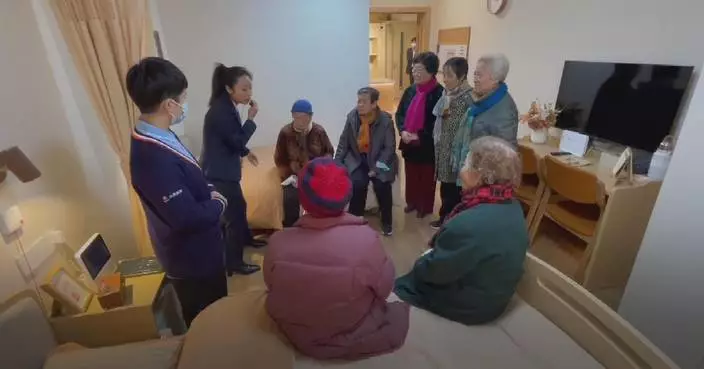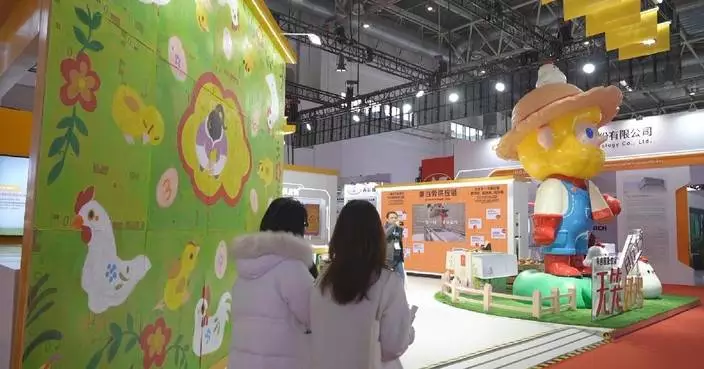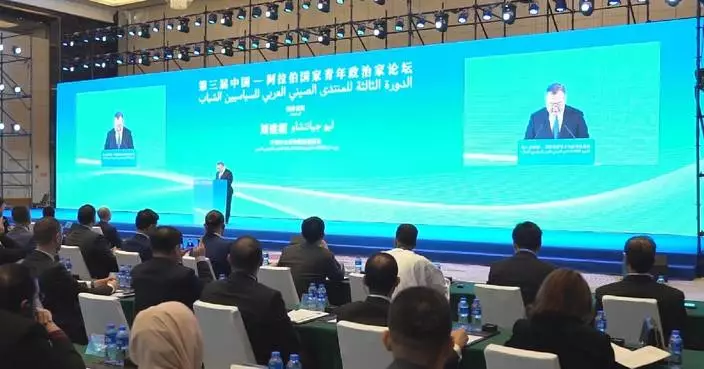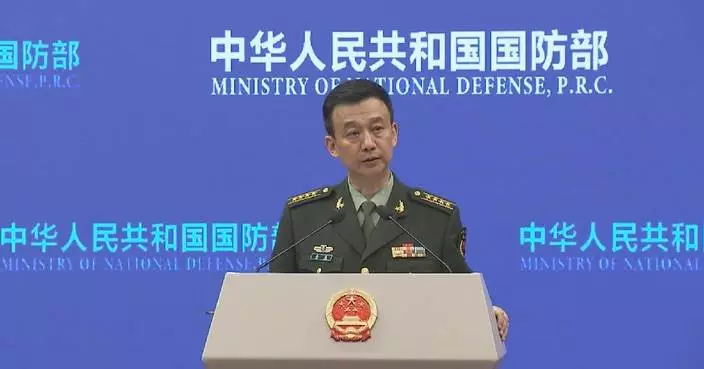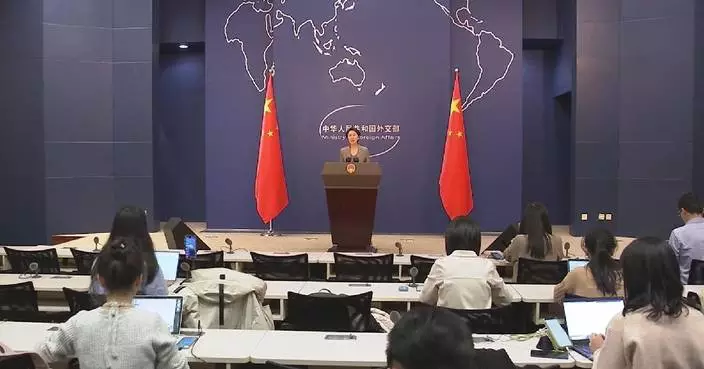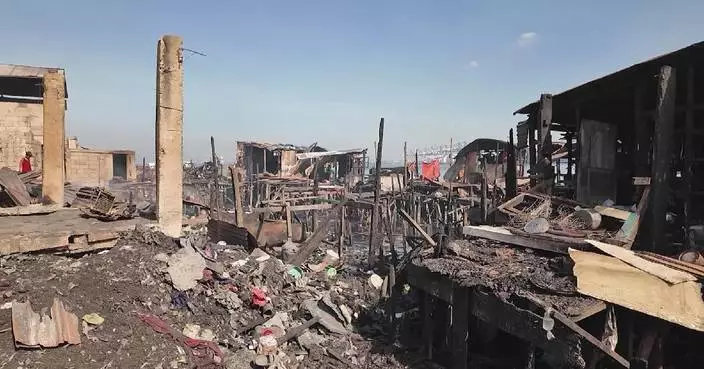Heavy winter rains and rising tides have worsened the plight of displaced Palestinians in the war-ravaged Gaza Strip, with families on the beach west of Khan Younis in southern Gaza losing their homes to the floodwaters and struggling to find shelter and basic necessities.
Umm Ahmed, a displaced resident, recounted how rising waves nearly drowned her children and destroyed their tent and belongings, leaving her family without shelter.
"Our children (girls) were covered by water. Our tent is destroyed. Everything is gone. We are here by the sea, the tent fell on us. The waves rose and the water rushed in. Our neighbors took our children to their tents in higher places. Since the morning, my son and I have been taking all our belongings out of the tent. There are no clothes left for the children, no bedding, no clothes. There is no place for us. We had moved to the beach. Where do we go now? May God punish Israelis for what they did to us. They tortured us, we can't sleep. We can't even settle. We have no food nor drink. The prices are very high. Our children go to sleep hungry. [We can only say:] Thank God for everything," she said.
Jamil Dhahir, another displaced resident, lamented the dire conditions where his family, separated when fleeing the waves, is now struggling with illness, lack of sleep and uncertainty about where to go next.
"They told us to move to this 'safe area', and as you can see, we were all harmed. Where do we go? We were in the camp east of Khan Younis before and later moved here. Where shall we go next? Our children and women are all sick. We haven't slept since yesterday. We fled the waves at night and the children went with their mothers to another camp to the east of here, while I stayed here," he said.
In a social media post on Monday, the U.N. Relief and Works Agency for Palestine Refugees in the Near East (UNRWA) said the recent rains have already caused immense hardship for Gazans, with a half million people at risk of flooding.
"The situation will only get worse with every drop of rain, every bomb, every strike," the agency said.
According to a statement released Wednesday by Gaza-based health authorities, the Palestinian death toll from the ongoing Israeli attacks in Gaza had risen to 44,282, with 104,880 injured.
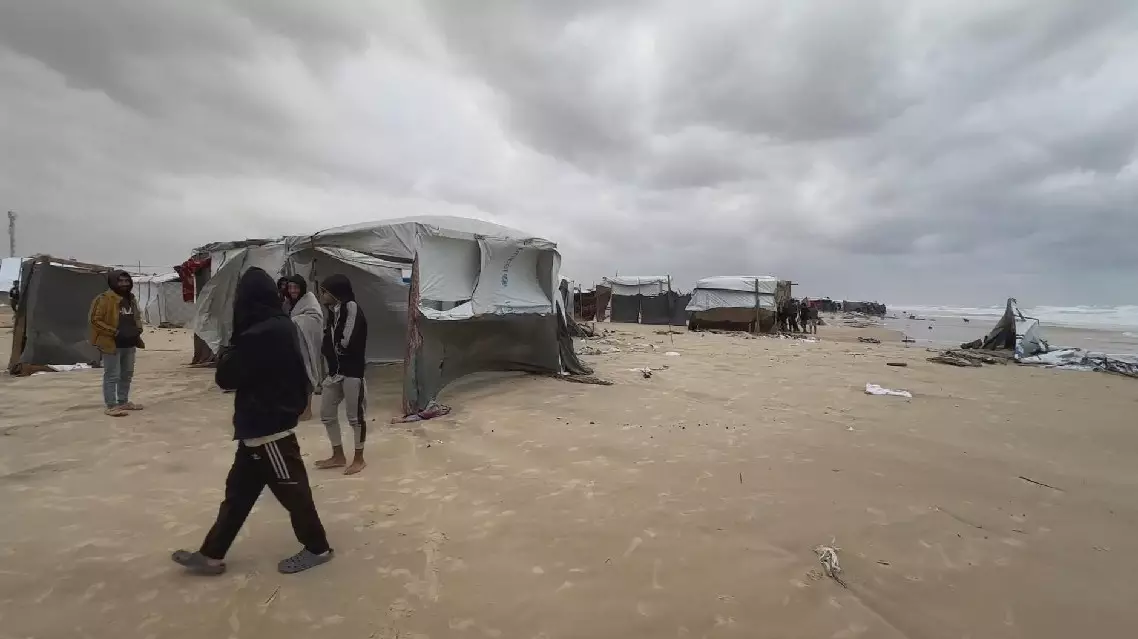
Winter rains compound suffering for displaced Palestinians in war-torn Gaza
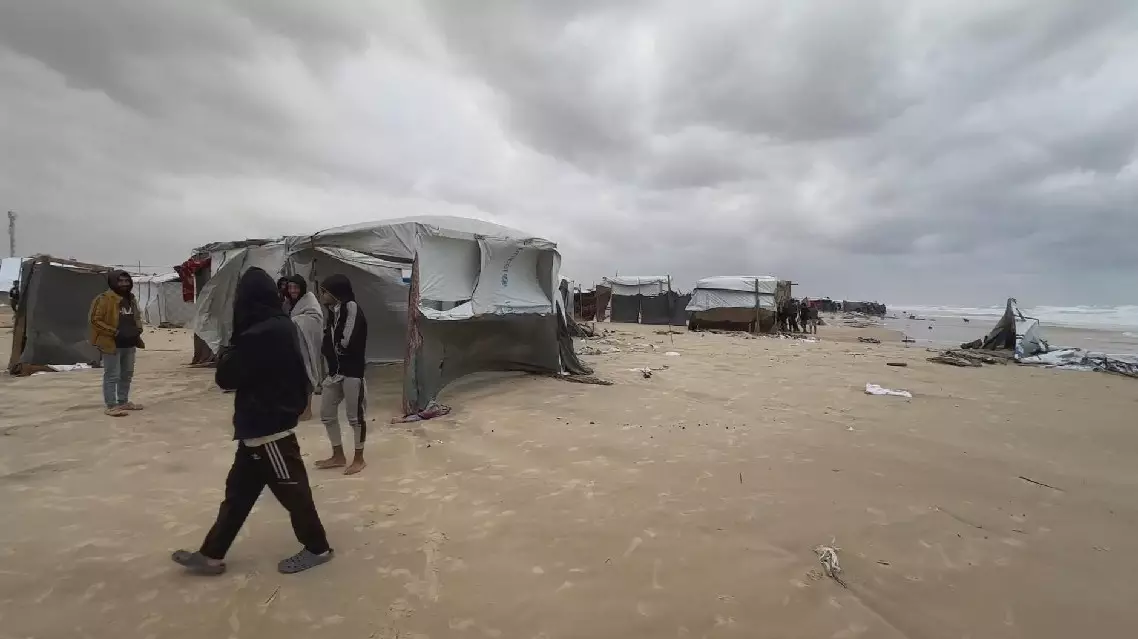
Winter rains compound suffering for displaced Palestinians in war-torn Gaza
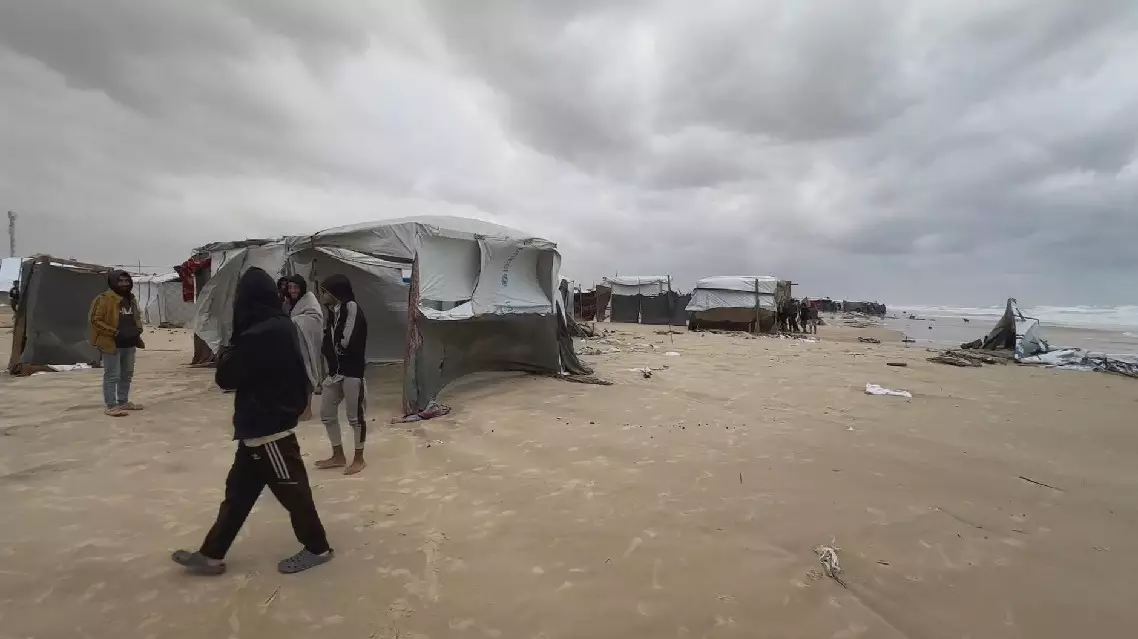
Winter rains compound suffering for displaced Palestinians in war-torn Gaza
United States soybean exporters will seek to build cooperation with Chinese partners as both sides strive to overcome the challenges posed by climate change and rising protectionism, said Zhang Xiaoping, Greater China Regional Director of the U.S. Soy Export Council (ESSEC).
In an interview with China Global Television Network (CGTN) on the sidelines of the second China International Supply Chain Expo (CISCE), which runs from Tuesday to Saturday in Beijing, Zhang said the event offers a very important platform for U.S. soybean exporters to promote the country's soy among Chinese buyers.
"We are here to create the awareness of the U.S. soy supply chain and also to help provide the knowledge about all those benefits and advantages of U.S. soy, and also to build the confidence in the reliability and sustainability," Zhang said.
The ESSEC regional director acknowledged that global trade is facing mounting difficulties, but he stressed that cooperating across borders can help alleviate the impacts.
"Of course, we've seen some challenges, as always. And we see them as opportunities to continue the partnership with the Chinese industries. So, the challenges we are having now [is] namely like climate change. That's the major challenge to the global soy industry, to the value chain or supply chain. And secondly is the rising global trade protectionism by various measures for various considerations. So, that's natural, but that's the fact to have this negative impact on trade liberalization," Zhang said.
"So we have this confidence that we can provide value to the Chinese industry to support their high-quality development that will be featured as low-carbon, green and sustainable or environmentally friendly animal production and food production. So, that's what we believe. We have this strength. So, that's also the opportunity," he said.
As the world's first national-level exhibition focusing on supply chains, the CISCE has attracted close to 700 exhibitors from 69 countries and international organizations this year. Over 60 percent of the exhibitors are Fortune Global 500 companies and industry leaders, and the proportion of foreign exhibitors has risen from 26 percent at the first CISCE to 32 percent.
In addition to exhibitions, this year's CISCE also includes a series of sideline events, including the release of an annual report on the global supply chain, and discussions on promoting supply chain stability, connectivity and accessibility, according to the event's organizers.

U.S. soybean industry sees opportunities for cooperation with China amid global challenges






